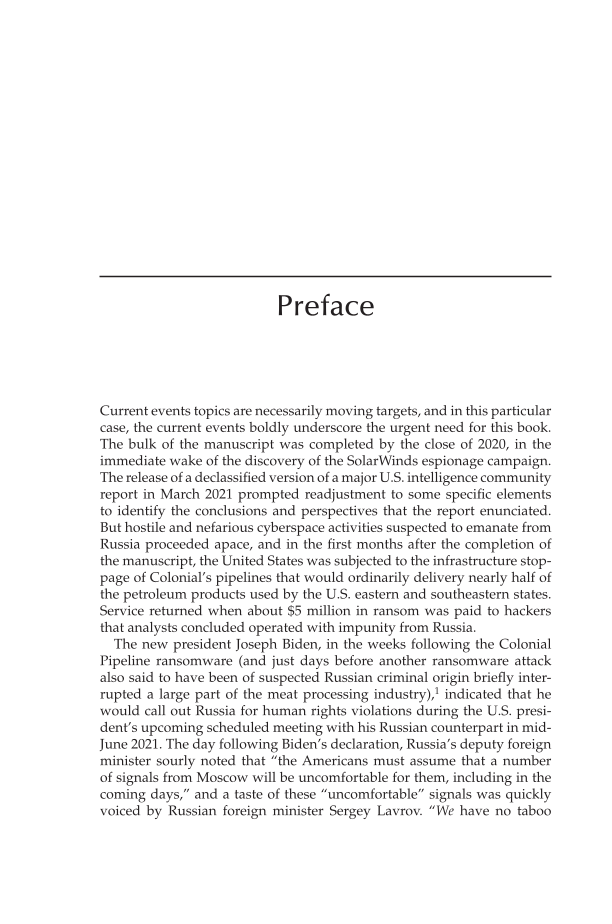Preface Current events topics are necessarily moving targets, and in this particular case, the current events boldly underscore the urgent need for this book. The bulk of the manuscript was completed by the close of 2020, in the immediate wake of the discovery of the SolarWinds espionage campaign. The release of a declassified version of a major U.S. intelligence community report in March 2021 prompted readjustment to some specific elements to identify the conclusions and perspectives that the report enunciated. But hostile and nefarious cyberspace activities suspected to emanate from Russia proceeded apace, and in the first months after the completion of the manuscript, the United States was subjected to the infrastructure stop- page of Colonial’s pipelines that would ordinarily delivery nearly half of the petroleum products used by the U.S. eastern and southeastern states. Service returned when about $5 million in ransom was paid to hackers that analysts concluded operated with impunity from Russia. The new president Joseph Biden, in the weeks following the Colonial Pipeline ransomware (and just days before another ransomware attack also said to have been of suspected Russian criminal origin briefly inter- rupted a large part of the meat processing industry),1 indicated that he would call out Russia for human rights violations during the U.S. presi- dent’s upcoming scheduled meeting with his Russian counterpart in mid- June 2021. The day following Biden’s declaration, Russia’s deputy foreign minister sourly noted that “the Americans must assume that a number of signals from Moscow will be uncomfortable for them, including in the coming days,” and a taste of these “uncomfortable” signals was quickly voiced by Russian foreign minister Sergey Lavrov. “We have no taboo
Document Details My Account Print multiple pages
Print
You have printed 0 times in the last 24 hours.
Your print count will reset on at .
You may print 0 more time(s) before then.
You may print a maximum of 0 pages at a time.




























































































































































































































































































